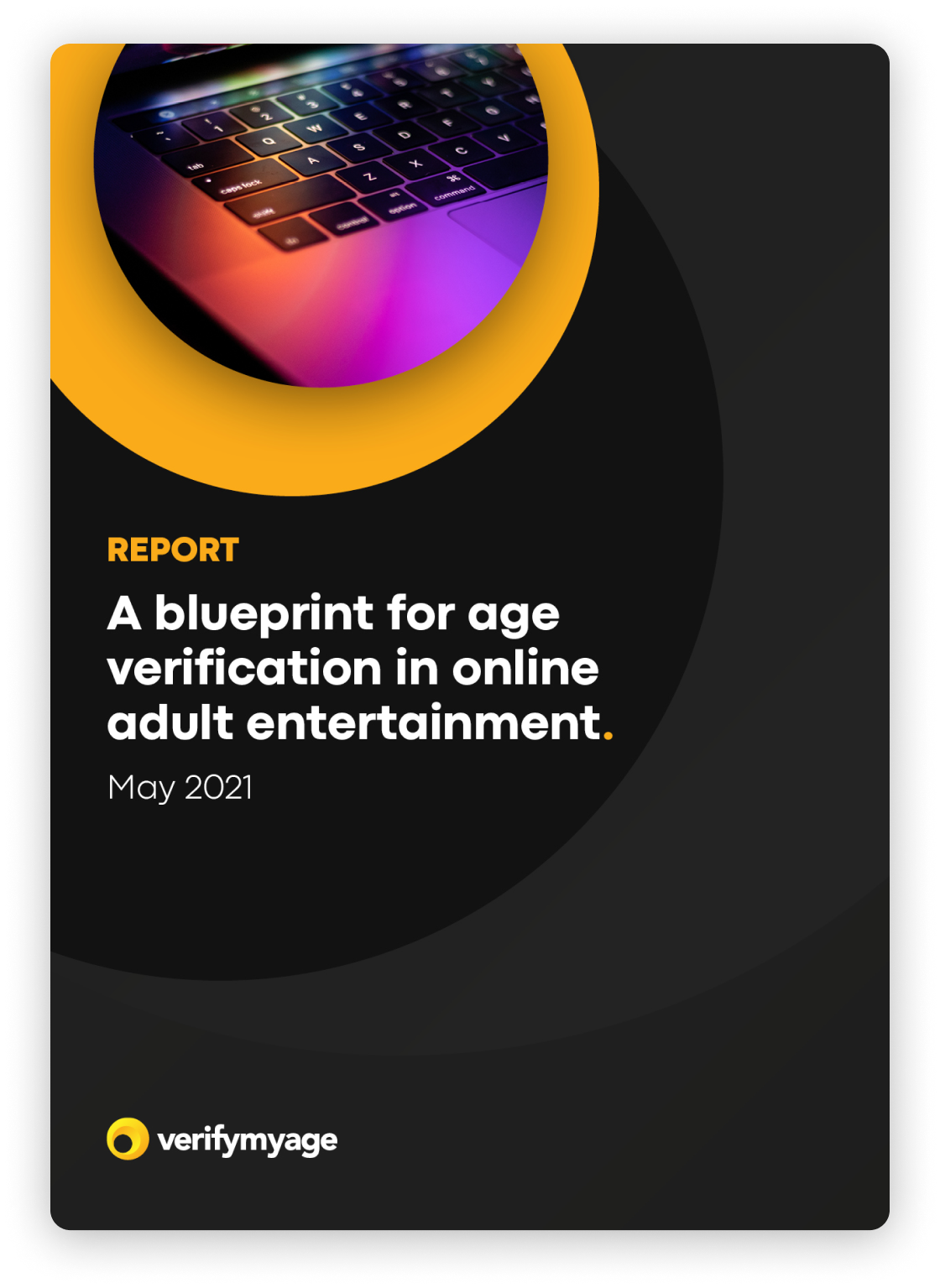Problem.
51% of 11–13-year-olds in the UK reported that they had seen pornography at some point, rising to 66% of 14–15-year-olds”

It is unacceptable that children are currently able to access adult content online. The growing proliferation of pornography online means that underage consumers are increasingly able to access adult material more regularly and more easily than ever before. This is not only a legal but an ethical problem for governments, businesses, and consumers globally. Click the report on the right to access our blueprint for age verification report.
The debate around online age verification has been going on for some time and consumers and adult content providers need clarity. The recurring issue of age verification has recently sparked conversations in some of Europe’s biggest countries as policy makers grapple with the balance between protecting children, data privacy, and technological and commercial viability.

State-of-play.
55% of consumers would not use a website if they did not like the way it asked them to prove their age – a further 32% were unsure.
VerifyMyAge’s blueprint report explores the current state of play in regard to how the European Union, United Kingdom, France and Germany are tackling age verification for access to adult content and what this means for local consumers and the content providers.
There is presently no uniform global or regional legislation dictating how these countries must approach the issue of minors accessing adult material. That said, each of these countries or political bodies have demonstrated a growing determination to stop underage access to pornographic content.
In addition to the legislation of these countries, our report explores the differing concerns of both consumers and content providers alike about underage access to pornography and enforced age verification.
Solution.
Today, the technology exists to implement online age verification that delivers the same degree of protection for children online as it does offline. VerifyMyAge’s report explores the six core features of online age verification that mean it will provide a seamless consumer experience, safeguard data privacy, be technically workable, and commercially viable for providers. It also details the numerous accessible ways through which consumers can verify their age, quickly and securely.
Finally, the report features seven key considerations for policy makers that are essential to take into account if effective and workable age checks are to be implemented in order to protect underage consumers and uphold a level playing field for content providers.
87% distrust publishers of pornographic content to independently verify the majority of people trying to access pornographic content online.”
Get in touch.
Have questions? Let's chat.
We’re always on-hand to discuss age verification.